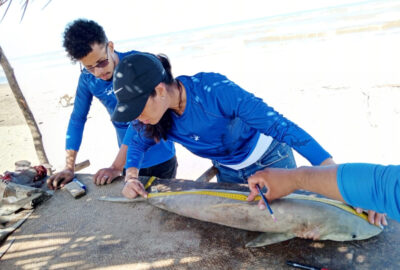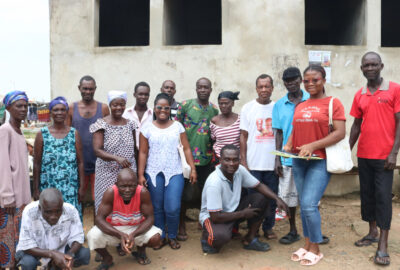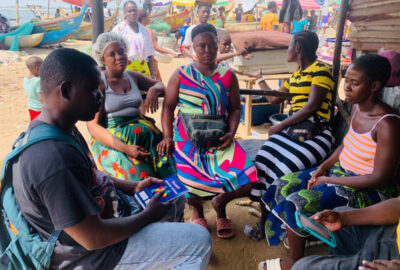The Marine Conservation Action Fund’s 2023 Year in Review
Read on to learn about some of the year's highlights as MCAF supports locally-led conservation action worldwide.
By New England Aquarium on Wednesday, February 07, 2024

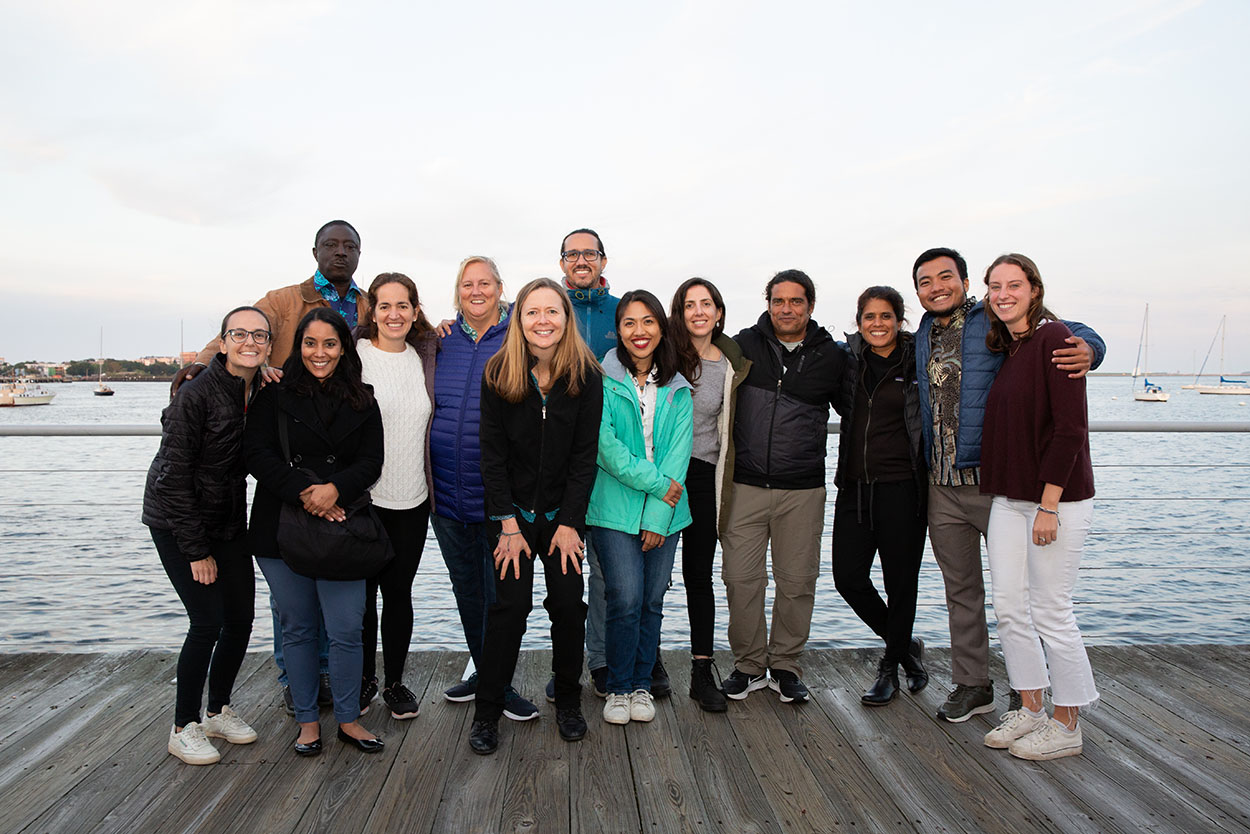
2023 was an exciting year for the New England Aquarium’s Marine Conservation Action Fund (MCAF) in supporting locally-led conservation across the globe. MCAF awarded $220,000 to 20 projects in 15 countries spearheaded by local leaders and their communities. These projects involved collecting critical data on imperiled species, promoting local and Indigenous-led marine management, fostering capacity sharing with communities, and sponsoring ocean leaders’ participation at international conferences. We also hosted our second MCAF Summit, welcoming Fellows from around the world to Boston for a week of community-building, networking, and learning exchange. Read on to learn about the successes of 2023!
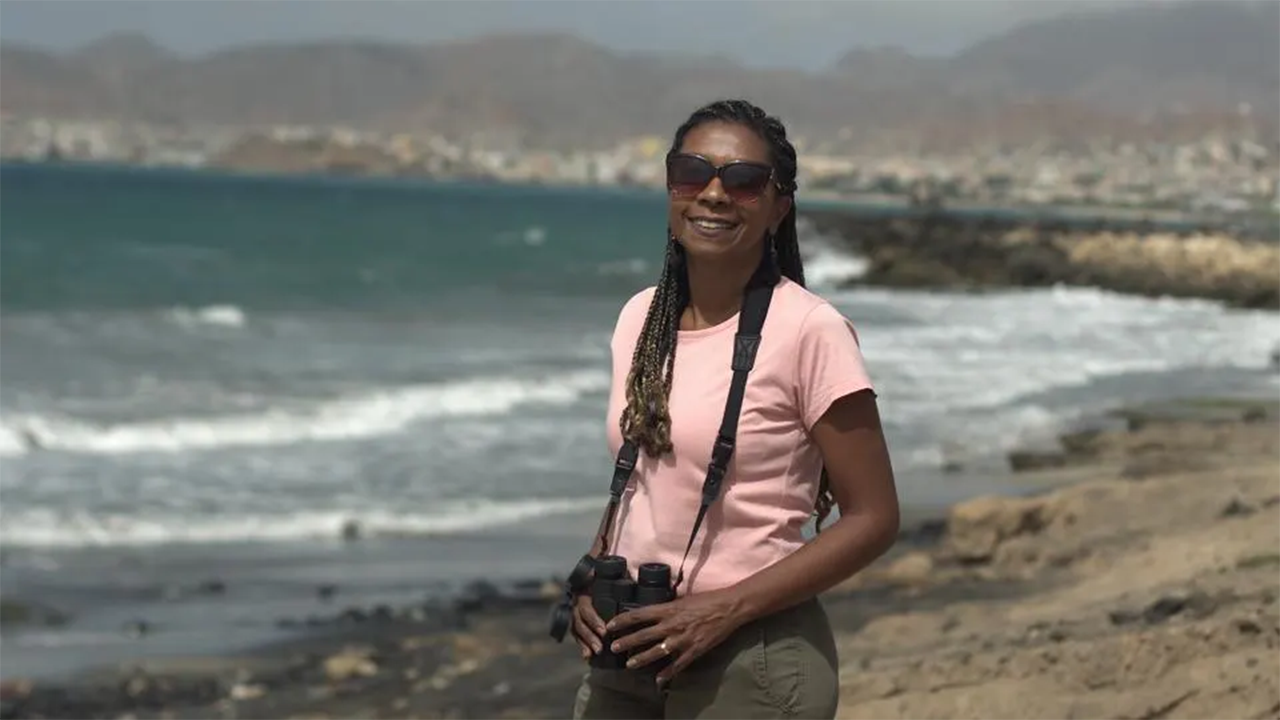
Sea turtle conservation through local capacity sharing
Capacity sharing with local communities is vital for effective and equitable conservation. Therefore, MCAF prioritizes projects that promote training and learning exchange with community members and stakeholders.
- Silvana Roque of TerriMar is using MCAF funds to build a team of local community members who will carry out night patrols, monitor nesting turtles, and facilitate awareness sessions within the community to increase the hatching success of loggerhead turtle nests in Cabo Verde.
- In Venezuela, Clemente Balladares is continuing a multi-year sea turtle nesting monitoring project, with plans to expand environmental education programs to fishers and students.
- In Guatemala, MCAF funds are supporting the continuation of a decades-long, community-based sea turtle monitoring program on the country’s Pacific coast led by the local non-governmental organization, ARCAS.
- Alejandra Guadalupe Sandoval-Lugo is using MCAF funds to encourage sea turtle conservation in Mexico through capacity sharing. She is training local fishers who want to lead conservation actions and hosting a science camp for the youth-led conservation movement. She has had enthusiastic participation from fishers and students, highlighting their growing interest in conservation. Alejandra’s project is a prime example of how working closely with the community benefits conservation efforts.
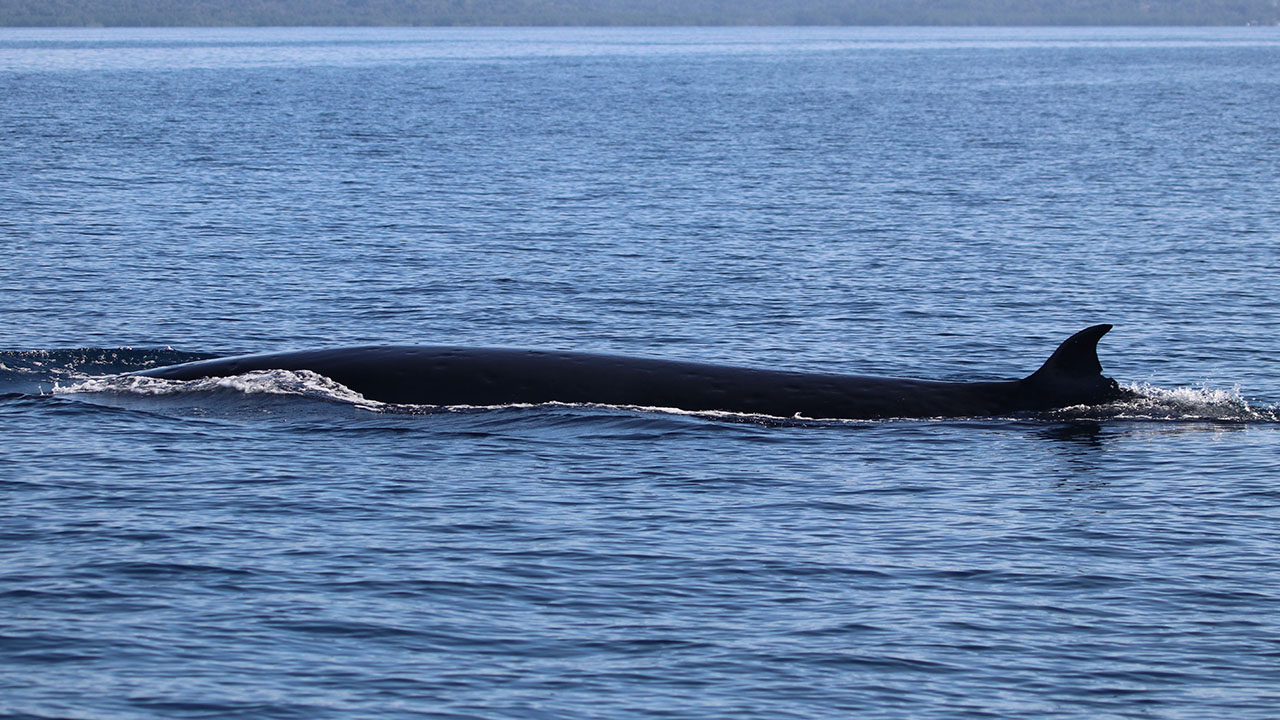
Marine mammal conservation through data collection and research
MCAF was able to support several projects in 2023 that used data collection and analysis to fill critical information gaps on population distribution and anthropogenic threats facing marine mammals.
- Natalia Botero-Acosta of Fundación Macuáticos in Colombia is working on continuing and amplifying a soundscape and hormone monitoring program focused on humpback whale reactions to anthropogenic noise in the Gulf of Tribuga. The data collected will inform critical decision-making, such as evaluating permit requests to build a deep-water port that could affect noise levels for cetaceans.
- The founder and principal investigator at balyena.org, Jo Marie Acebes, DVM, PhD, and her team lead a Bryde’s, blue whale, and Omura’s whale assessment, monitoring, and conservation program in the Bohol Sea, Philippines. Six months into the project, Jo and her team have spotted 70 cetaceans from ten species, including the target species of Bryde’s and Omura’s whales. Researchers also spotted Bryde’s whale poop, an exciting finding which indicates that the Bohol Sea is a feeding area!
- Dr. Edem Archibong Eniang of the Biodiversity Preservation Centre in Nigeria is working to fill information gaps on endangered Atlantic humpback dolphin populations by conducting surveys, identifying high-density areas of these animals, and encouraging fishers to report sightings. Once the data is analyzed, it will be used to identify potential sites for in-situ conservation and contribute to regional efforts to initiate the conservation of this species.
Shark and ray conservation through collecting critical data
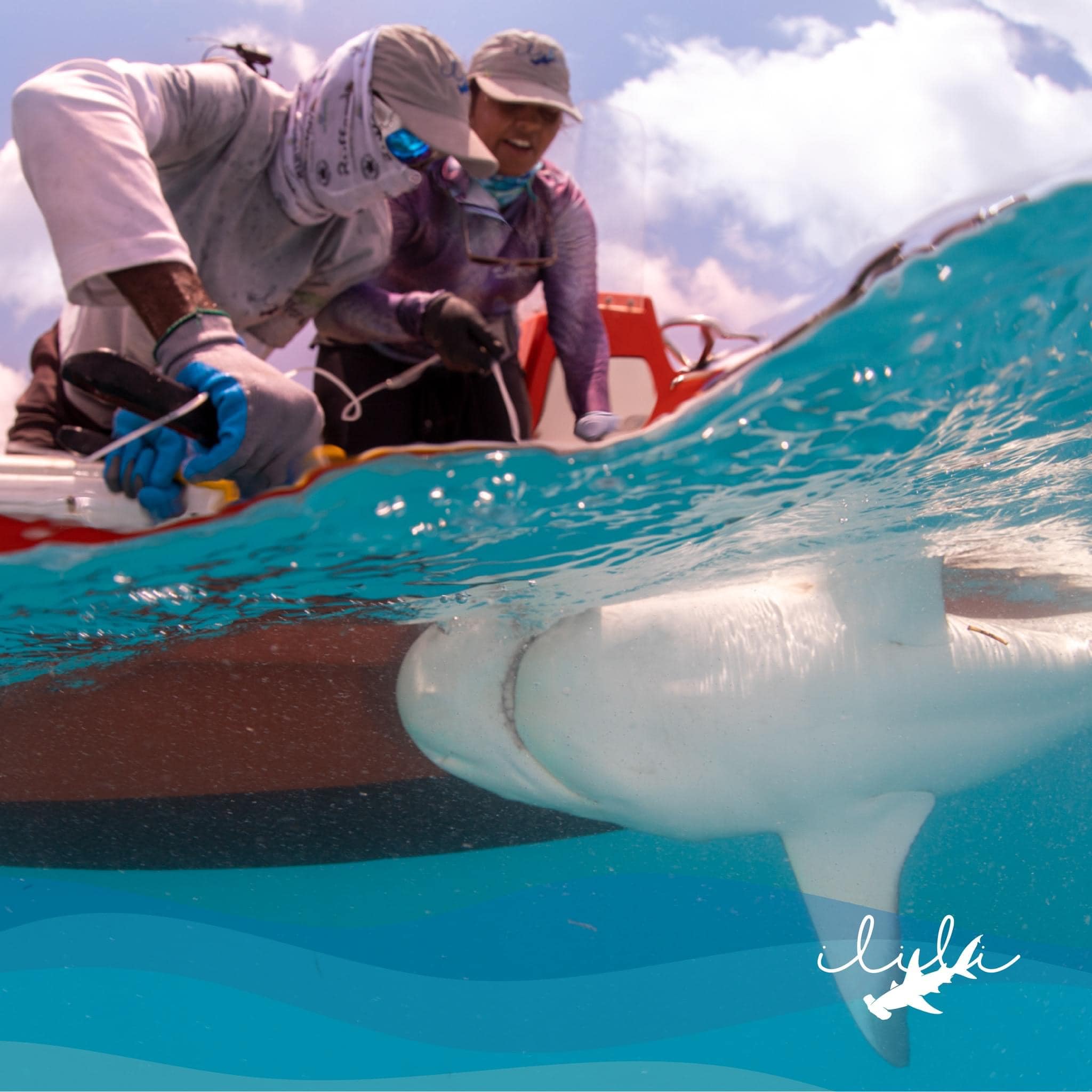
MCAF supported projects collecting data on the distribution and abundance of sharks and rays and the threats facing these species.
- Aldo Alfonso Zabala Jiminez, a graduate student at UC Santa Cruz, is collecting data on threats to oceanic manta rays in Bahia de Banderas, Mexico, and fostering cooperation among local communities to design and implement protection guidelines.
- Alejandra Mendoza of ecOceánica is working to assess threats affecting the whale shark population on the northern Peruvian coast. Six months into the project, Alejandra and her team have completed 15 fishing trips and eight boat surveys to monitor whale sharks. ecOceánica also collaborated with Wake Forest University to set up drone projects to monitor whale shark behavior and biology.
- In Cuba, Fabian Pina Amargos of CariMar aims to promote the protection of sawfish across the country. He is assessing the presence and distribution of sawfishes by expanding a network of collaborators in coastal communities. Fabian has conducted two large-scale fieldwork activities: one focusing on sawfish reports and specimens and the other a circumnavigation of the Cuban archipelago to survey shark and ray populations.
- Gabriela Ochoa and her team at Ilili are working to strengthen the technical capacities of government institutions and organizations working with sharks in Honduras by conducting a comprehensive assessment of shark conservation status and involving local shark fishers in research activities. She will hold training workshops, give presentations, analyze market trends, and work with diverse stakeholders to achieve her goals.
Training the next generation of ocean leaders
Investment in locally-led conservation goes deeper than supporting established ocean professionals; it requires inspiring future generations to continue protecting the ocean’s habitats and species. MCAF supported two projects in 2023 that educated, trained, and motivated young people to work in marine conservation.
- MCAF Fellow Dr. Issah Seidu launched his hands-on training fellowship for early career scientists in Ghana. He taught three participants market and landing survey techniques, qualitative and quantitative interview techniques, effective community education models, and the biology, ecology, and identification of marine megafauna found in Ghana.
- Project Leader Yolanda Sanchez, co-founder and coordinator of the Latin-American Marine Educators Network (RELATO), is using MCAF funds to strengthen the organization and develop a marketing and communication strategy. RELATO’s goal is to develop a space where marine educators can exchange capacities, ideas, methodologies, and materials. What the educators learn with RELATO will be used to teach future generations of ocean leaders.
Strengthening Indigenous-led conservation
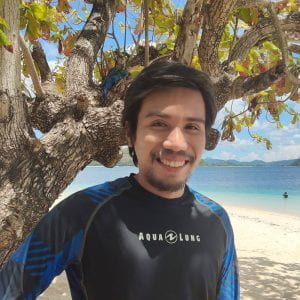
Indigenous community involvement and local knowledge are critical to successful area-based conservation. In 2023, MCAF supported the work of Clint Gallaron, who strives to include the Tagbanwa Indigenous community in establishing the Indigenous Marine Managed Area (IMMA) Network in Busuanga Island, Philippines. The project will prioritize Indigenous communities’ by highlighting their stewardship practices and establishing guiding principles for IMMA management that respect Tagbanwa’s rights to self-determination, self-governance, and long-standing ocean stewardship.
Promoting diverse representation at international conferences
A prominent inequity in the marine conservation field is the challenges faced by conservationists from the majority world to travel to international conferences. This inequity arises from issues including barriers to obtaining visas as well as travel and registration expenses. To help address the financial barrier, MCAF was honored to support three Fellows and Project Leaders in attending international conferences to present, network, and engage in knowledge exchange with other practitioners. These funds help ensure that diverse voices are represented at international conferences.
- Kerstin Forsberg, the Founder and Director of Planeta Oceano in Peru, traveled to the Our Ocean Conference in Panama. Our Ocean creates a “collaborative dialogue between heads of state, private sector, civil society, and academic institutions to discuss how we can save our marine resources, promote sustainable use, and educate the public about our ocean.” Another important goal of the conference is to implement effective area-based management.
- Issah Seidu, founder of AquaLife Conservancy in Ghana, was invited to attend the ReShark Conference in Seattle. This invite-only international conference convened experts to collaborate on recovering threatened sharks and rays. Issah also visited New York City to attend the Student Conference on Conservation Science.
- Alejandra Guadalupe Sandoval-Lugo, sea turtle biologist at Instituto Politécnico Nacional in Mexico, will be attending the International Sea Turtle Symposium this year in Thailand along with her student, Marla Dublyn Diaz-Gámez. They will be presenting their MCAF-supported project, “Building local capacity for natural heritage conservation. Chelonia mydas in Sinaloa, Mexico,” and will participate in workshops and knowledge-sharing sessions.
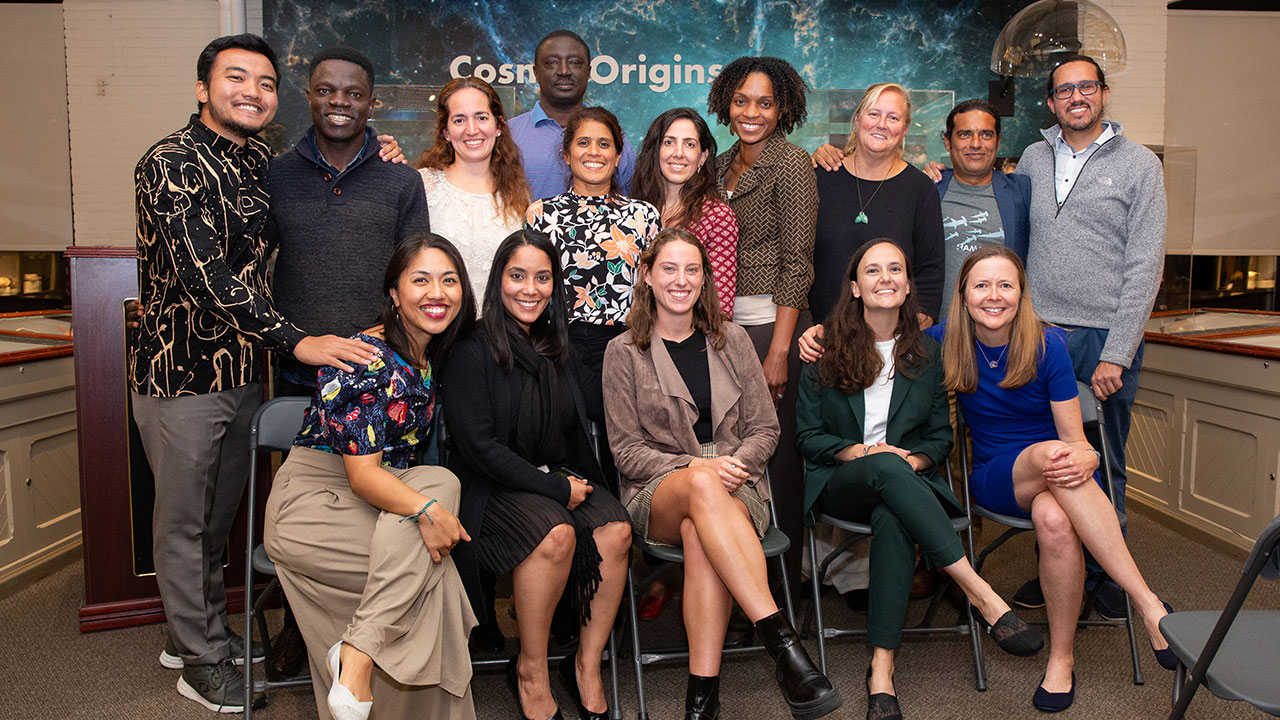
2023 Fellows Summit
In September, we hosted our second MCAF Fellows Summit. It was a wonderful week of stimulating conversations, community building, learning exchange, networking, and fun activities with 11 fellows from nine countries and three additional fellows participating remotely. The summit focused on deepening connections and growing community among the Fellows, the Aquarium community, and external collaborators.
To hear from the fellows about their experience at the summit, read our blog reflecting on the event.
Looking ahead to 2024
We are grateful for the efforts of MCAF Project Leaders and Fellows whose work to protect the ocean benefits all of us. We look forward to continuing to support these critically important, locally-led marine conservation efforts in the year ahead. We will also continue to promote equity and inclusion in conservation, including through a collaborative workshop on equity we are co-hosting at the UN Ocean Decade Conference in Barcelona, Spain, in April. We are excited to be growing our global community. Towards the end of 2024, we will launch an open call for new MCAF Fellows and will be honored to welcome a new cohort of visionary and accomplished conservation leaders into the MCAF Program.

